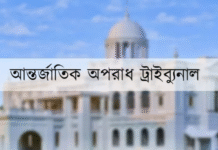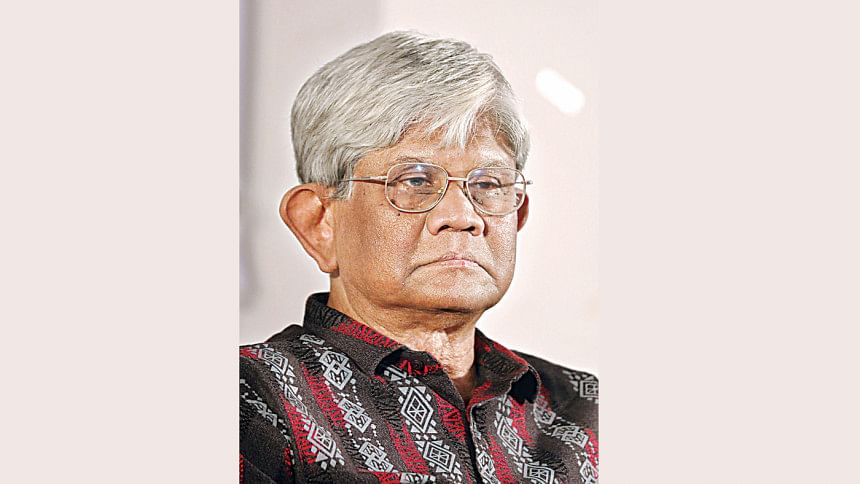
Dr Salehuddin Ahmed
Salehuddin Ahmed is a former governor of the Bangladesh Bank and is currently a professor at BRAC Business School.
Born in Old Dhaka, Ahmed hails from a family in Nabinagar upazila of Brahmanbaria. He completed his schooling at Dhaka Collegiate School in 1963 and went on to earn a postgraduate degree in economics from the University of Dhaka in 1969.
In 1974, he enrolled in another postgraduate course at Canada’s McMaster University, from where he earned a PhD degree four years later.
Ahmed began his career in academia as a lecturer in economics at the University of Dhaka in 1970. He later joined the erstwhile Civil Service of Pakistan and served in various administrative roles within the government of Bangladesh.
His career includes significant contributions at the Centre on Integrated Rural Development for Asia and the Pacific, an inter-governmental organisation headquartered in Dhaka.
Ahmed served as the central bank governor from May 1, 2005, to April 30, 2009.
He also served as the managing director of the Palli Karma-Sahayak Foundation and the director-general of Bangladesh Academy for Rural Development, Cumilla and the NGO Affairs Bureau under the Office of the Prime Minister.
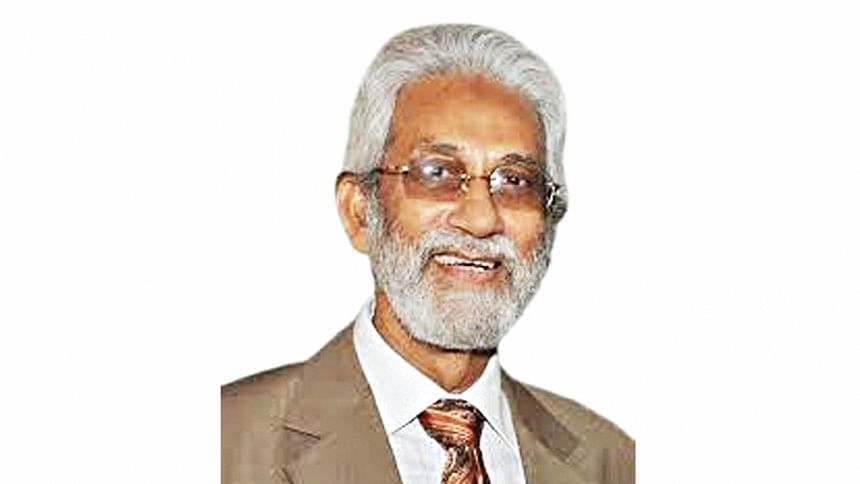
AF Hassan Ariff
AF Hassan Ariff is a senior advocate for the Supreme Court who has been practicing law in Bangladesh since 1970.
From October 2001 to April 2005, he served as the attorney general under the four-party alliance government led by the BNP and Jamaat.
From January 2008 to January 2009, he served as the legal adviser to the caretaker government.
Hassan Ariff began his career at the Calcutta High Court in West Bengal, India, in 1967.
After that, in 1970, he moved to Dhaka and began working as a lawyer at the High Court.
Hassan Ariff is a Court Member of the ICC International Court of Arbitration.
He has previously served as an adviser to the Roads and Highways Department of the Government of Bangladesh, the Chittagong Port Authority, the Mongla Port Authority, the Security Exchange Commission, the Bangladesh Bank, the Capital Development Authority, the Chittagong Development Authority, the Chittagong Stock Exchange, the University Grants Commission (UGC), Robi Axiata Limited, and Grameen Phone Bangladesh.
He is currently an adviser to the Dhakeshwari National Temple Complex.
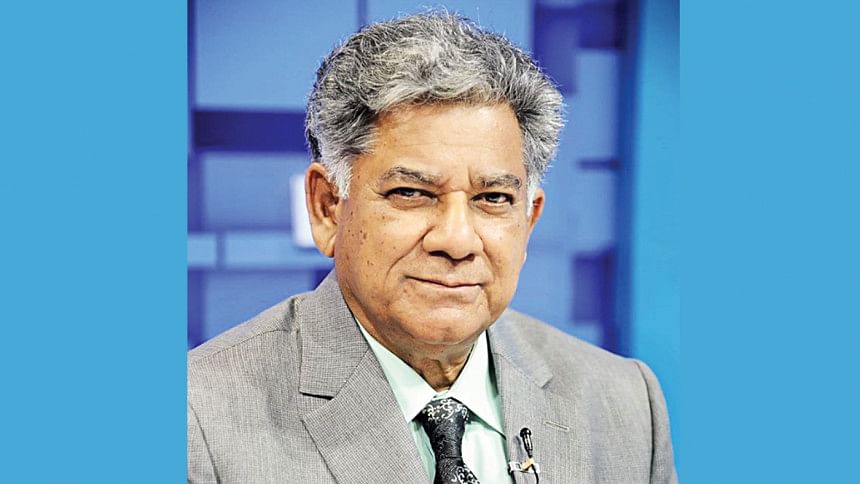
Brig Gen (Rtd) M Sakhawat Hussain
M Sakhawat Hussain is a former election commissioner and a retired brigadier general of the Bangladesh Army.
He graduated from the Defence Services Command and Staff College in Mirpur, Dhaka in 1979. He studied at the United States Army Command and General Staff College from 1981-1982.
He obtained a postgraduate degree in strategic studies from Quaid-i-Azam University, Islamabad. He is an alumnus of the National Defence College, Pakistan.
Sakhawat was commissioned into Pakistan Army in 1966 from Pakistan Military Academy, Kakul. He joined the Bangladesh Army in 1972 after the country’s independence.
He was appointed as a commissioner in the Election Commission headed by ATM Shamsul Huda in 2007 and served until 2012.
An author of 26 books, Sakhawat served as a lieutenant colonel in the Military Operations Directorate.
Post-retirement, he became an individual researcher in national security and defence, a columnist and security analyst.
He served on the board of state-owned Sonali Bank.
Currently, he is an honorary research fellow at the South Asian Institute of Policy and Governance at North South University.
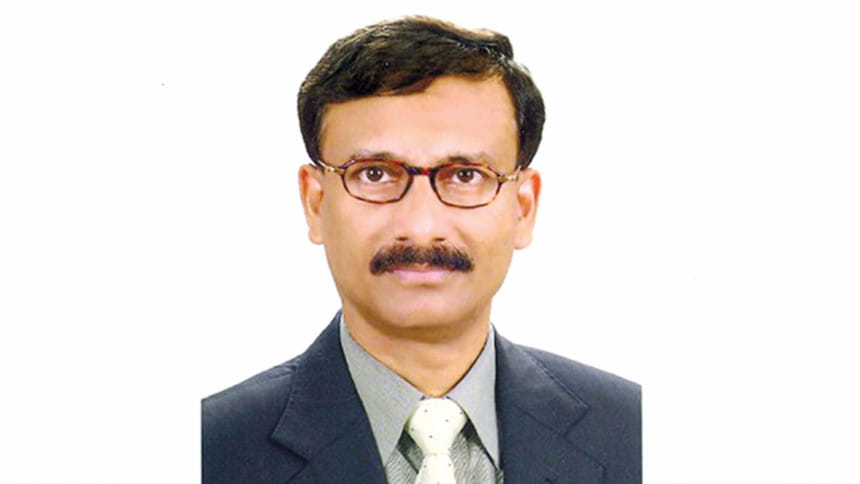
M Touhid Hossain
Md Touhid Hossain, 70, is a former foreign secretary of Bangladesh.
Hossain, born on 1 February 1955, completed his master’s degree in history from the University of Dhaka.
He joined the Bangladesh Foreign Service in 1981.
From January 1999 to February 2000, he served as the principal of the Foreign Service Academy.
Hossain was the Deputy High Commissioner of Bangladesh in Kolkata from 2001 to 2005 and served as Foreign Secretary of Bangladesh from 2006 to 2009.
In June 2012, Hossain was appointed the High Commissioner of Bangladesh to South Africa.
Md Touhid Hossain is a regular commentator on international affairs in media and writes columns for The Daily Star, Prothom Alo and other news outlets.
He is also a researcher on regional and international relations issues.
In 2022, he wrote a paper on “Prospects and Challenges in Bangladesh’s Relationship with Germany and the European Union” on the country’s 50th Anniversary of Independence.
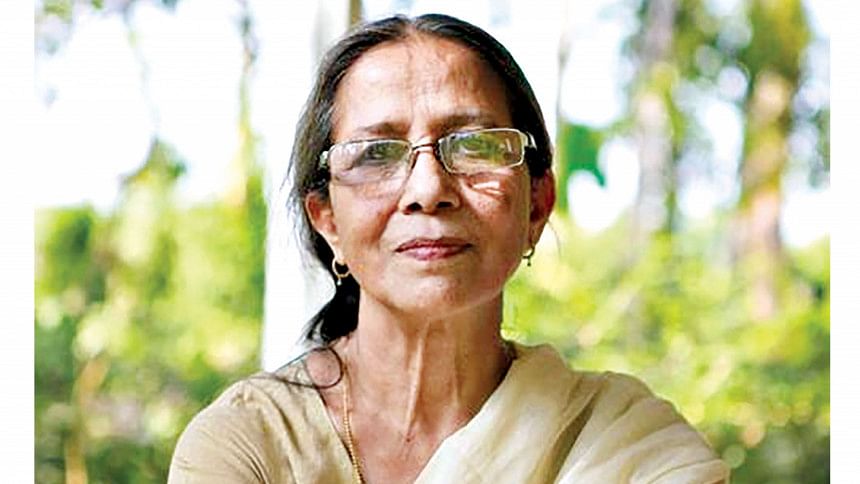
Farida Akhter
Farida Akhter is a well-known rights activist who has been vocal about women’s rights since the 1980s.
Also an advocate of biodiversity-based ecological agriculture, she has carried out extensive research in this field.
She is the executive director of UBINIG (Policy Research for Development Alternative) — a policy and action research organisation formed in 1984 by a group of activists to support the people’s movement for social, economic, political and cultural transformation.
Farida is also the president of Narigrantha Prabartana, a book store and publication house for women.
She fiercely protested the 1995 rape and murder of 14-year-old Yasmin Akhter in Dinajpur by members of the Bangladesh Police, a crime that sparked widespread demonstrations.
Farida is also a crusader for direct election to the reserved seats in parliament.
Born in Chattogram in 1953, she graduated from Chittagong University with a degree in economics. She is married to writer, columnist, and poet Farhad Mazhar.
Farida herself has written several books, including Resisting Norplant: Women’s Struggle in Bangladesh Against Coercion and Violence; Depopulating Bangladesh, among others.
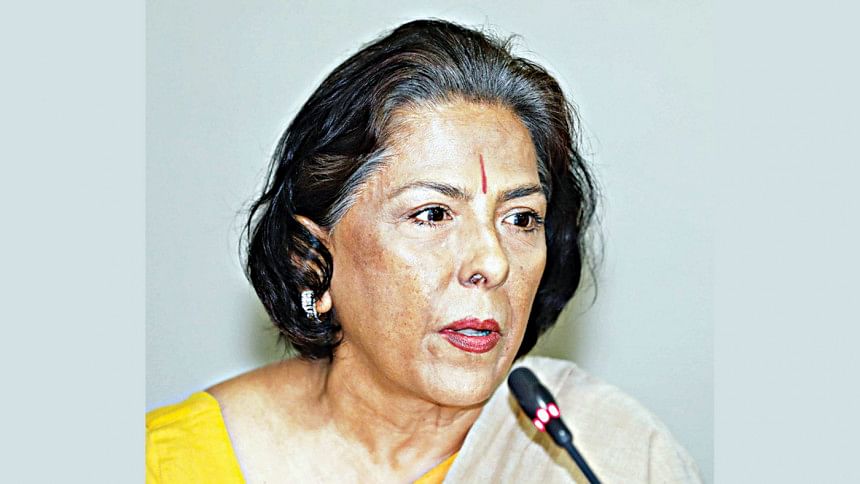
Sharmeen Murshid
Sharmeen Murshid is a well-known election expert and the chief executive officer at “Brotee,” an organisation that monitors elections.
She has long advocated for free and fair elections as well as open democracy and the strengthening of democratic institutions in the country.
Sharmeen is the daughter of Khan Sarwar Murshid, an educationist, diplomat, and intellectual, as well as a renowned teacher at Dhaka University.
Sharmeen’s mother, Nurjahan Murshid, was a journalist, teacher, and social activist.
Sharmeen is also secretary-general of “Uttarsury”, a cultural center.
During the Liberation War in 1971, she was a member of “Bangladesh Mukti Shangrami Shilpi Shangstha”, a cultural troupe that used to travel to refugee camps and different liberated areas (also known as “Mukta Anchal”) and perform patriotic songs, arrange puppet shows, and stage dramas to inspire freedom fighters and lift the spirits of war-affected people.
Later in 1995, a famous documentary titled “Muktir Gaan” was made on the works of the troupe.
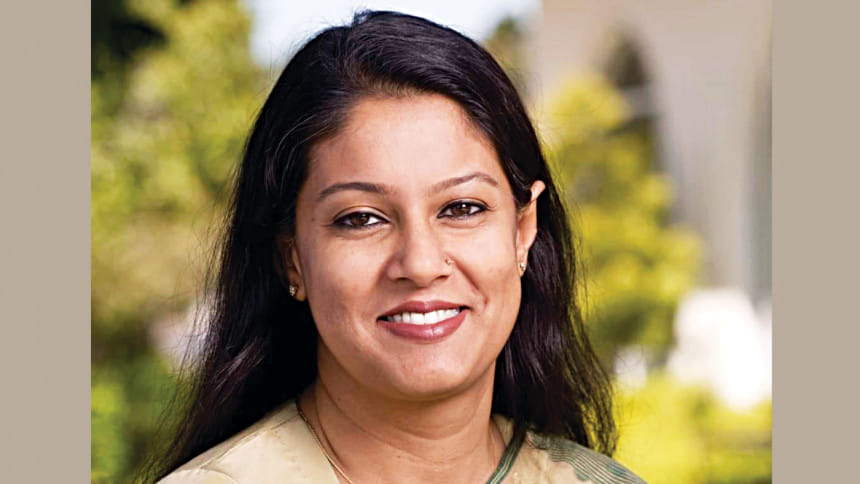
Syeda Rizwana Hasan
Syeda Rizwana Hasan is a Supreme Court lawyer and the chief executive of the Bangladesh Environmental Lawyers Association (BELA).
Rizwana has been vocal on environmental issues in the country.
She is a recipient of the Ramon Magsaysay Award, which is regarded as the Nobel Prize of Asia, for her campaign for environmental justice.
She has also been named one of the 40 Environmental Heroes of the World by TIME magazine.
Rizwana is also the chairperson of RDRS. It was established as the Bangladesh field programme of the Geneva-based Lutheran World Federation/Department for World Service (LWF/DWS) in February 1972 to provide relief, rehabilitation, and development assistance to the war-affected people in northwest Bangladesh.
She serves on the boards of several other NGOs, including FIVDB, Nijera Kori, the Association of Land Reforms and Development (ALRD), Gonoshashaya Kendra (GK), the NGOB Platform, and the Bangladesh Rural Advancement Committee (BRAC).
Rizwana, born on January 15, 1968, began her career at BELA in 1993.
She got her honour’s and master’s degrees in law with distinction from Dhaka University.
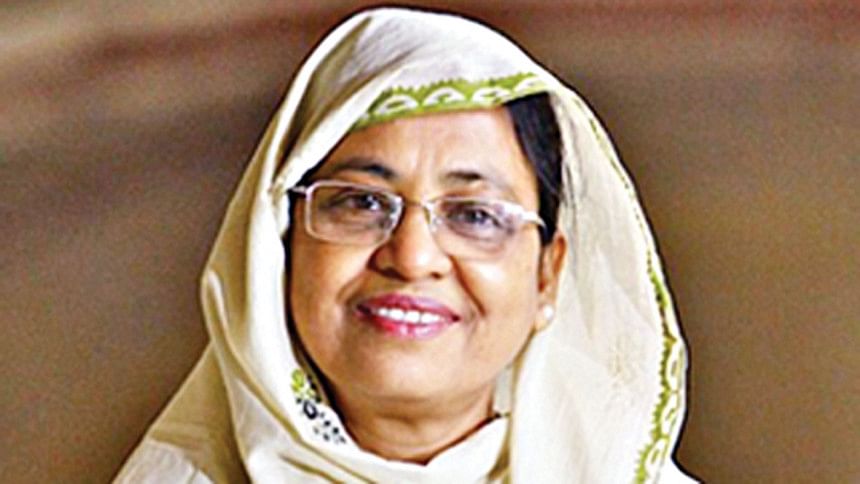
Nurjahan Begum
Nurjahan Begum is one of the earliest associates of Muhammad Yunus during the establishment of Grameen Bank in 1976 in the village of Jobra in the Chittagong district.
A student of Chittagong University, Nurjahan played an important role in organising poor rural women in Grameen Bank’s grassroots groups in the bank’s earliest and most challenging days when rural women were hardly allowed to go out of doors and speak to non-relative males, let alone take a loan from an institution.
She worked as Grameen Bank’s programme officer at Chittagong, Tangail, Rangpur and Patuakhali and general manager of Training and International Programme for more than a decade. She also served as the principal of Grameen Bank’s Central Training Institute.
She worked as deputy managing director of the Nobel Prize-winning organisation and after Yunus retired in 2011, she became the acting MD.
She has been working as an honorary MD of Grameen Shikkha and director of several companies under the Grameen umbrella.
Nurjahan was awarded the Susan M Davis Lifetime Achievement Award 2008 by the Grameen Foundation, World Summit Millennium Development Goals Award 2009, and Vision Award 2009.
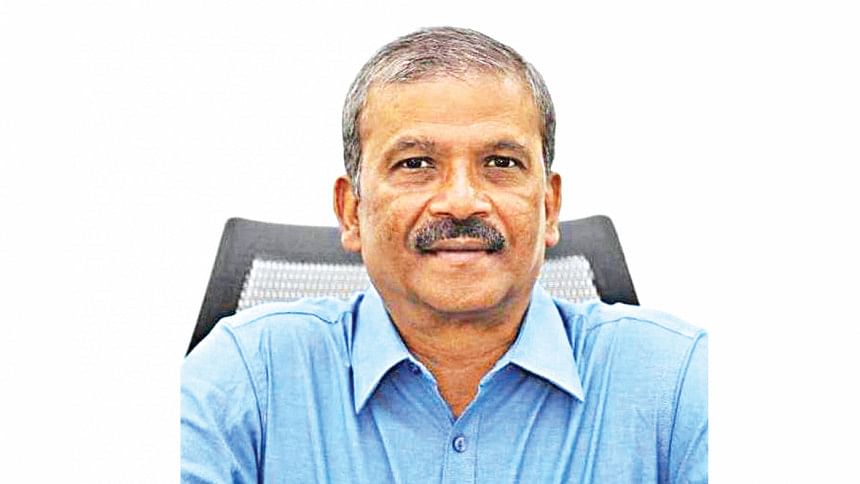
Dr Asif Nazrul
Asif Nazrul is a faculty of the University of Dhaka’s law department.
Born as Md Nazrul Islam in 1966, Nazrul did his LLB (Honours) and LLM from the University of Dhaka. He received his PhD in International Law from the School of Oriental and African Studies in 1999.
Before joining Dhaka University in 1991, he used to work with Bichitra, a well-reputed newsweekly of that time. He also worked as a government officer (Magistrate) for a few months.
Nazrul is a popular columnist and human rights defender. He co-authored a number of books and wrote research papers on constitutional and international legal issues in leading journals and books.
He was a Bureau Member of the South Asian for Human Rights from 2011-17.
He worked as a consultant to the EU delegation in Bangladesh, UNDP, ADB, DANIDA, SIDA, CARE, TIB and other organisations on issues of good governance, access to justice and human rights.
Nazrul actively supported the recent anti-quota discrimination student movement and attended various programmes in favour of protesters.
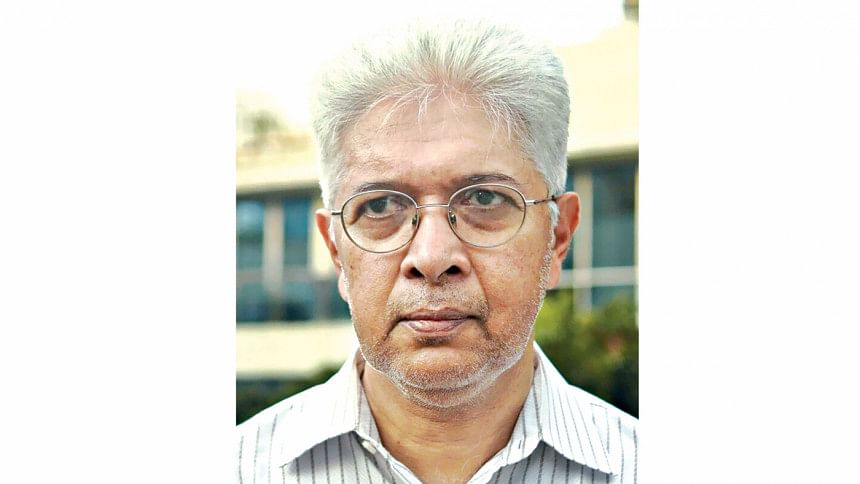
Adilur Rahman Khan
Adilur Rahman Khan is a Supreme Court lawyer and prominent human rights activist in Bangladesh.
He is also the secretary of rights organis-
ation Odhikar, which monitors the human rights violations in the country.
Adilur, along with several other members of the civil society, founded Odhikar back in 1994.
He and his colleague were sentenced to two years in prison in a case filed over allegedly “running a distorted report and doctored images” over the May 5-6, 2013 police action on a Hefazat-e-Islam rally in the capital’s Motijheel.
In 2022, the government had cancelled Odhikar’s registration.
Khan studied law at Dhaka University and was part of the democratic movement against Lieutenant General Hussain Mohammad Ershad.
He was a deputy attorney general during the last tenure of BNP-led government.
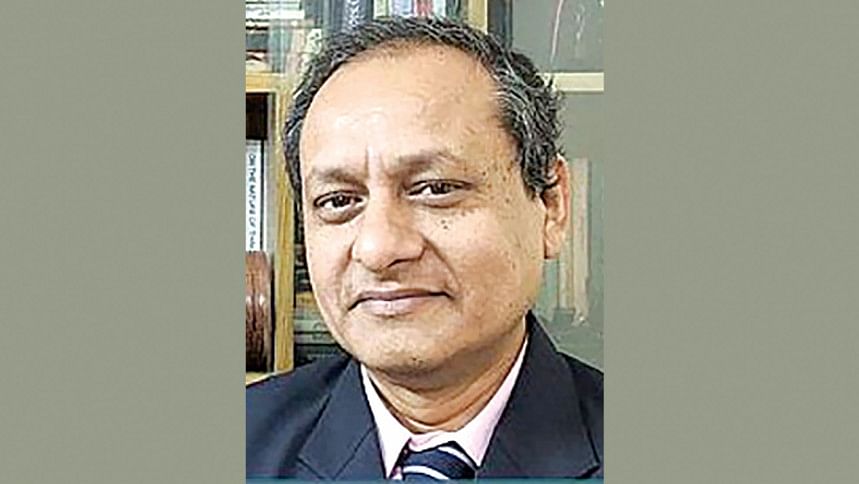
Bidhan Ranjan Roy Podder
Bidhan Ranjan Roy Poddar is a former director of the National Institute of Mental Health and Hospital in Dhaka. Bidhan, a psychiatrist, now practices in Mymensingh.
He was born in Sunamganj in 1964. He completed his SSC from Sunamganj Government Jubilee High School and his HSC from Dhaka College. He got his MBBS degree from Sir Salimullah Medical College.
He was born in Sunamganj in 1964. He completed his SSC from Sunamganj Government Jubilee High School and his HSC from Dhaka College. He got his MBBS degree from Sir Salimullah Medical College.
He served as the director of psychiatry department at the National Institute of Mental Health and Hospital from March 2020 to July 2023.
“I was out of the city [last night] so I could not take the oath along with the other advisers. I will be taking the oath later,” he told The Daily Star.
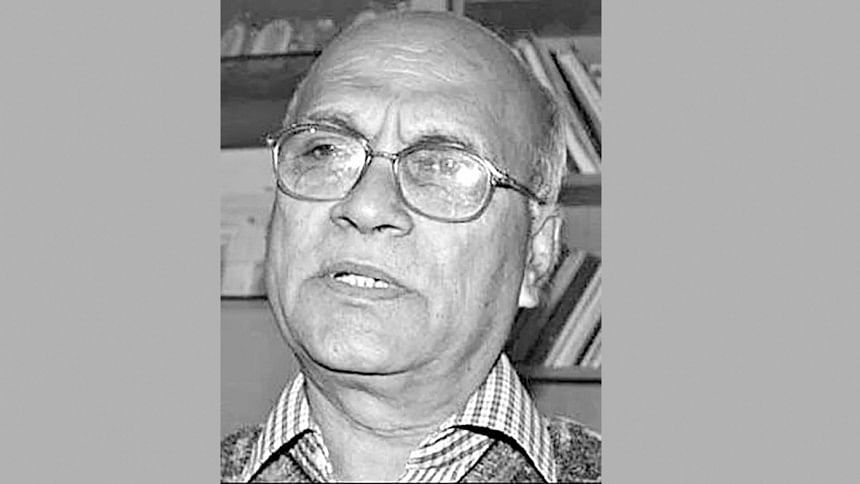
Faruk-e-Azam
Faruk-e-Azam, awarded Bir Pratik for his valiant role in the Liberation War, was a naval commando.
Born in Chattogram’s Hathazari upazila, Faruk was a sub-commander of “Operation Jackpot”, one of the biggest operations against the Pakistan occupation forces carried out in Chattogram port.
Three teams were selected to attack the port on August 16, 1971. One team could not reach Chattogram, but the other two teams, comprising 37 members, participated in the attack, with AW Chowdhury as the captain.
In 1971, Faruk completed his Higher Secondary Examinations and was in Khulna at the beginning of the Liberation War.
He overcame many obstacles to reach Chattogram.
On May 6, he crossed the border and took shelter in India’s Harina Youth Camp.
During his stay there, he was enlisted in the navy. After two months of training in Palashi, he was chosen for the “Operation Jackpot”.
Faruk was one of the organisers of the first Bijoy Mela in Chattogram in 1989 and was an active member of the Forum for Planned Chattogram.
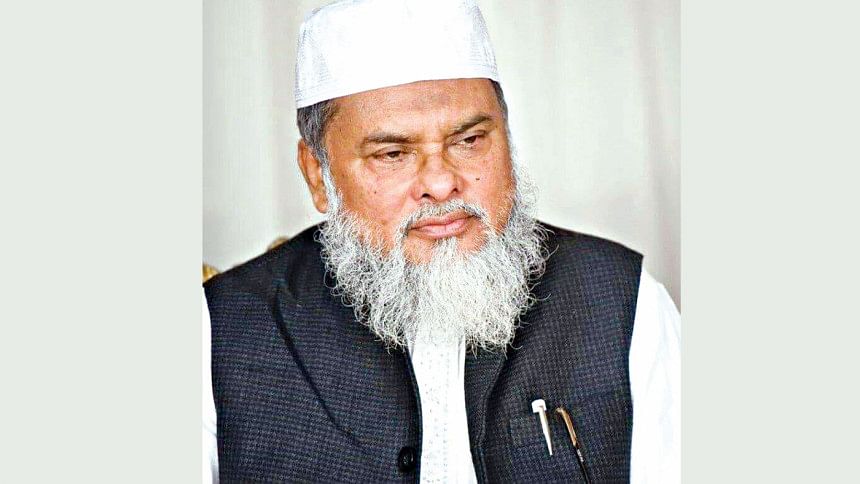
AFM Khalid Hossain
AFM Khalid Hossain is a professor in the department of Quranic Science and Islamic Studies at the International Islamic University Chittagong.
He is the Nayeb-e-Ameer of Hefazat-e-Islam Bangladesh and an advisor for Islami Andolan Bangladesh.
Hossain is now serving as the Muhaddith at Al Jamia Al Arabia Jiri in Chattogram’s Patiya upazila and is the Khateeb at Hadrat Uthman Jame Mosque in Halishahar, Chattogram.
Born in 1959 in Babu Nagar village in Satkania upazila, he earned his MA and BA from the Islamic History and Culture department of Chittagong University and PhD from the same university in 2006.
He was an associate professor and head of the Islamic History and Culture Department at Omar Ghani MES College and a former principal of Satkania Alia Madrasah.
He had also served as the editor of the monthly At Tawheed and was a correspondent for The Bangladesh Times and The Daily Sangbad.
Additionally, he was on the editorial board of the Islamic Encyclopedia at the Islamic Foundation.
His teaching experience includes roles at various educational institutions, and he has published four literary translations, five articles and seven books.
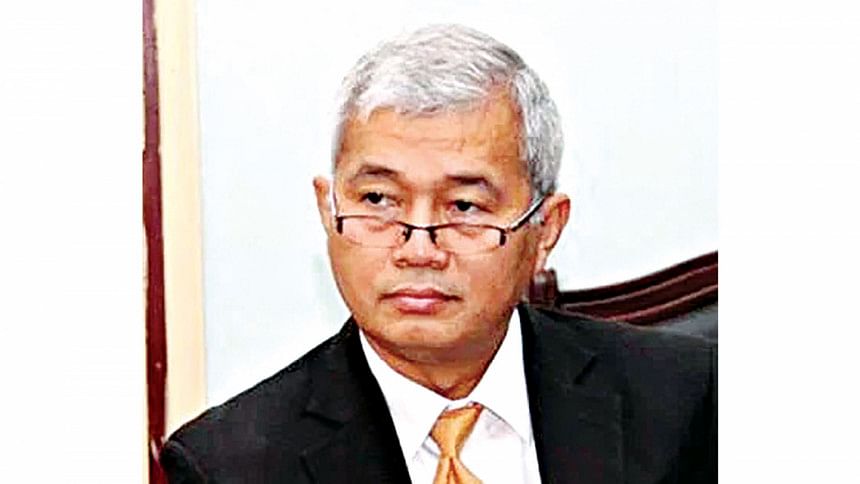
Supradip Chakma
Supradip Chakma is a former ambassador and the current chairman of the Chittagong Hill Tracts Development Board.
He previously served as the Bangladesh ambassador to Vietnam and Mexico.
As a foreign cadre from the BCS 1985 batch, he held various positions at the Bangladesh Embassy in Rabat, the Bangladesh High Commission in Colombo, the Bangladesh Embassy in Brussels, and the Bangladesh Embassy in Ankara.
Born in Khagrachhari in 1961, he studied marketing at Dhaka University.
As a foreign cadre from the BCS 1985 batch, he held various positions at the Bangladesh Embassy in Rabat, the Bangladesh High Commission in Colombo, the Bangladesh Embassy in Brussels, and the Bangladesh Embassy in Ankara.
When contacted, Supradip said, “When the cabinet secretary called me, I informed him that I’ll not be able to take the oath today as I’m currently in Rangamati. If the procedure permits, I am willing to take the oath at a later date.”
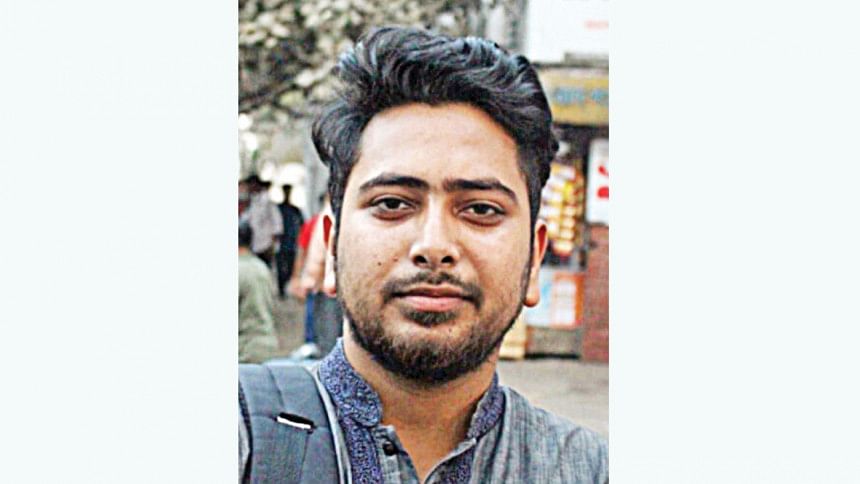
Nahid Islam
Nahid Islam is a key organiser of the student movement that led to the departure of Sheikh Hasina.
A masters student of sociology at Dhaka University, Nahid is one of the two youngest advisors to a government. The other one is Asif Mahmud.
Nahid is also the member secretary of Ganotantrik Chhatra Shakti formed by the breakaway members of Chhatra Odhikar Parisahd led by Nurul Haque Nur.
He was picked up allegedly by the law enforcers last month and was tortured until he lost consciousness. When the student protests peaked, he was detained by the Detective Branch of police again along with five other fellow protesters.
In 2018, Nahid participated in the quota-reform protests that shook the nation. At the time, he received threats from the university administration and teachers.
In 2019, he vied for the cultural secretary post at Dhaka University Central Students’ Union from Nurul-Rashed-Faruk panel under the banner of Bangladesh Sadharon Chhatra Odhikar Songrokkhon Parishad.
He lost the election and later separated himself from the parishad.
He admitted to DU in the 2016-2017 session.
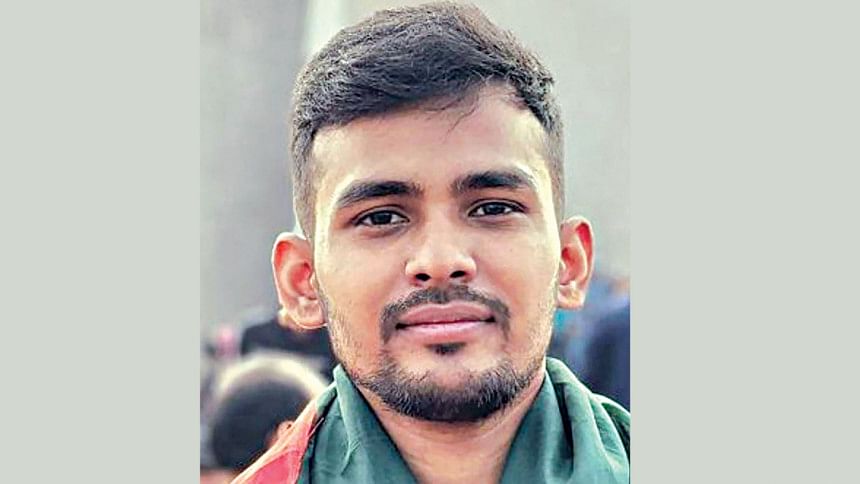
Asif Mahmud
Asif Mahmud Shojib Bhuyian is one of the coordinators of the quota reform protest that later turned into an anti-government movement, which eventually toppled the Sheikh Hasina-led government.
Asif, a master’s student at linguistics department of Dhaka University, along with five other leaders of the Anti-discrimination
He was active during the quota reform protest in 2018. He was elected president at the first conference of Chhatra Adhikar Parishad in 2023.
Student Movement was detained by the Detective Branch of police for several days.
He was active during the quota reform protest in 2018. He was elected president at the first conference of Chhatra Adhikar Parishad in 2023.
He, however, resigned within around five months alleging that the central leadership violated the organisation constitution.
He became the convener of a new student organisation, named Gonotantrik Chhatra Shakti, on October 4 last year.
Asif was born on July 14, 1998, in Cumilla.
source : Daily Star



